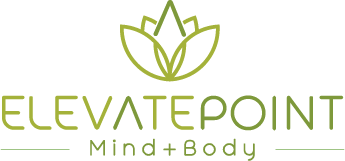Table of Contents
With chronic pain and injury rates rising in the New York City area, access to effective painkiller addiction treatment for both adolescents and adults is increasingly important. Elevate Point’s Painkiller Addiction Treatment program in Brooklyn, New York, combines evidence-based therapies with a mind-body approach to support lasting recovery. Through our PHP and IOP programs, we help clients manage withdrawal symptoms, build a strong support system, and receive personalized care. In individual and group therapy sessions, clients learn to regain control, set meaningful goals, and explore holistic strategies for managing pain. Choose wellness and lasting recovery by taking the next step with Elevate Point’s Painkiller Addiction Treatment program.
Painkiller Addiction: The Brain and Drugs
Many drugs have a direct impact on the reward circuit of the brain, taking advantage of dopamine signals. Under normal conditions, the brain releases dopamine as a reward for healthy behaviors like exercise, good eating, and sex. The amount of dopamine is regulated, and after it has flooded the brain for a short amount of time, it gets reabsorbed.
This is what leads to a temporary high after you complete a marathon or the good feelings you get after a healthy meal. But those feelings don’t last. The reason behind this is to encourage ongoing healthy behaviors.
With drugs, however, the brain will often increase the level of dopamine to a level that the body doesn’t normally produce, which leads to a high that can’t be matched with things like exercise. Some drugs work by preventing that dopamine from being reabsorbed, which means it lasts even longer. After that, it can be difficult to get any sense of pleasure or reward from healthy behaviors because drugs have altered that system, leading to maladaptive or harmful behaviors designed to acquire more drugs.
There’s light waiting on the other side of addiction. Grow toward it.
Our recovery experts will help you move into your next stage of life in
a spa-like state-of-the-art setting.
Prescription Painkillers and Addiction
There are many reasons that adolescents and adults find themselves addicted to prescription painkillers, usually relating to an initial source of injury or chronic pain that leaves one dependent on a medication for regular relief.
Sometimes, this can lead to addiction.
Research indicates that older adults are more likely to develop addiction to prescription pain medications as a result of conditions related to the aging process.
Chronic health conditions are a natural part of the aging process, which means that older adults are more likely to be prescribed medications and at a higher risk of accidental misuse or intentional misuse.
Persistent chronic pain makes it more likely that individuals will receive prescription opioids, which comes with a high risk of addiction.
Risks of Addiction to Painkillers
There is no single factor that will predict whether you become addicted to prescription drugs, or any drugs for that matter. As such, being prescribed something like opioids or other pain medication to manage a chronic condition does not automatically mean that an individual is at risk for addiction.
Several other factors can increase the risk, such as:
- Genetics: Your genetics will account for your risk of addiction and, in particular, addiction to specific substances
- Environment: The environment in which you live can greatly impact your risk of addiction, especially if you are surrounded by other people with addiction or have underlying mental health issues or a history of trauma
If you or someone you know is struggling with addiction, no matter the cause or the risk factors, you can find personalized care at Elevate Point.



Why Get Help at a Painkiller Addiction Rehab?
Opioid related overdose deaths in particular are a serious risk in New York state with opioid deaths higher than national averages over the last several years. Prescription drug addiction brings with an increased risk of unintentional overdoses which is why it’s important to find the right type of help.
The right type of help can ensure that you are able to detox safely and get the follow-on support you need for long-term stability.
With comprehensive care, you can start with medication-assisted treatment, a detox service that helps you taper and transition from addiction to painkillers. After that, your focus can turn to individual, group, and family therapy sessions combined with holistic care to help uncover the things that might have contributed to addiction or things that might have exacerbated addiction. With the right treatment program, you can learn how to manage symptoms of stress, anxiety, and chronic pain using healthier coping mechanisms.
Painkiller Addiction Rehab with Elevate Point
At Elevate Point, we offer painkiller addiction rehab for adolescents and adults. Our programs include evidence-based therapies and a mind-body approach to treat your whole self, boosting your physical, mental, and emotional well-being.
PHP
Our partial hospitalization programs let you return home in the evenings. During the day, you will participate in a spa-like environment where you are regularly engaged in practices like:
- TMS
- ENG3 Technology
- Yoga
- Art Therapy
- Mindfulness Meditation
- CBT
- DBT
IOP
Our Intensive outpatient programs provide you with immersive care and flexible scheduling. This program gives you personalized treatment in a calming environment with innovative, holistic approaches and evidence-based therapies. Where appropriate, we can also provide trauma-focused approaches that give you the skills you need in real-time to build resilience, strengthen your family relationships, set recovery goals, and learn lasting coping skills.
These practices in our programgs make it easier for you to focus on underlying factors that might contribute to painkiller addiction in the first place. This can be your environment, the environment in which you grew up, or a chronic pain condition.
Learning to manage chronic pain can be much easier when facilitated by skills learned in yoga, CBT, or mindfulness meditation. Both yoga and mindfulness meditation, for example, can help you learn to sit with discomfort, recognizing that physical discomfort is temporary while bringing your attention away from worries about the past or the future and instead on the present moment. This is often done by tying your attention to something within your control: you’re breathing, helping to ground your focus in the here and the now.
We Accept Most Major Insurance
Our recovery experts are here to help you move into your next stage of life in a spa-like, state-of-the-art setting. Contact us today to verify your insurance and explore your treatment options — we’ll help you get the care you need while making treatment costs more manageable.






Find Help Today
Finding painkiller addiction rehab in New York doesn’t have to be in a sterile hospital environment. With Elevate Point, we offer flexible intensive outpatient programs and partial hospitalization programs. These programs give you medication-assisted treatment for withdrawal, medical wellness support, and holistic care. With our individual and group therapy sessions, you can learn to redirect your focus on things within your control and to set recovery goals today.
Reach out today at 212.285.2022 to start your painkiller addiction rehab in New York.
Elevate Point therapy programs, where the next phase of life begins.
There’s a better life for you. Contact us today at 646.760.7324 and we’ll help you uncover the you that’s just under the surface.
"*" indicates required fields

